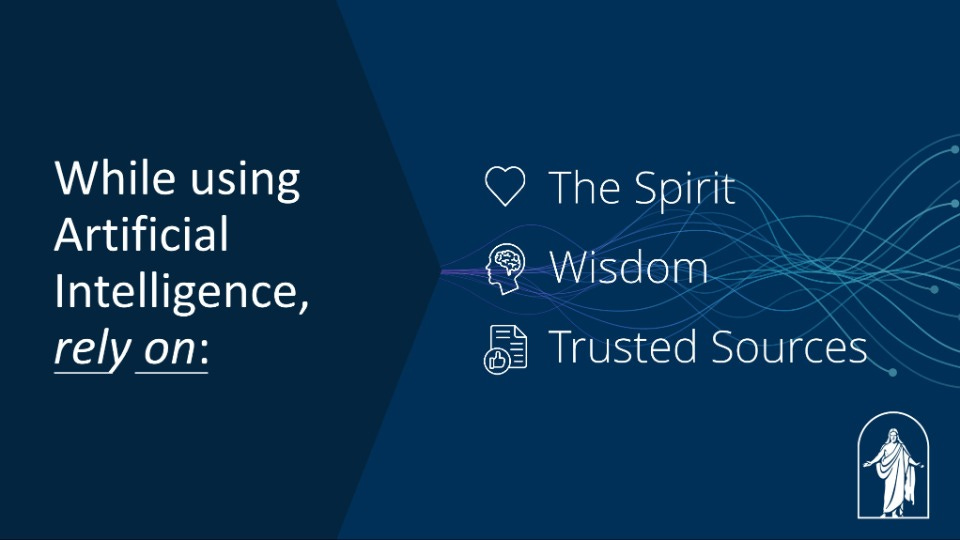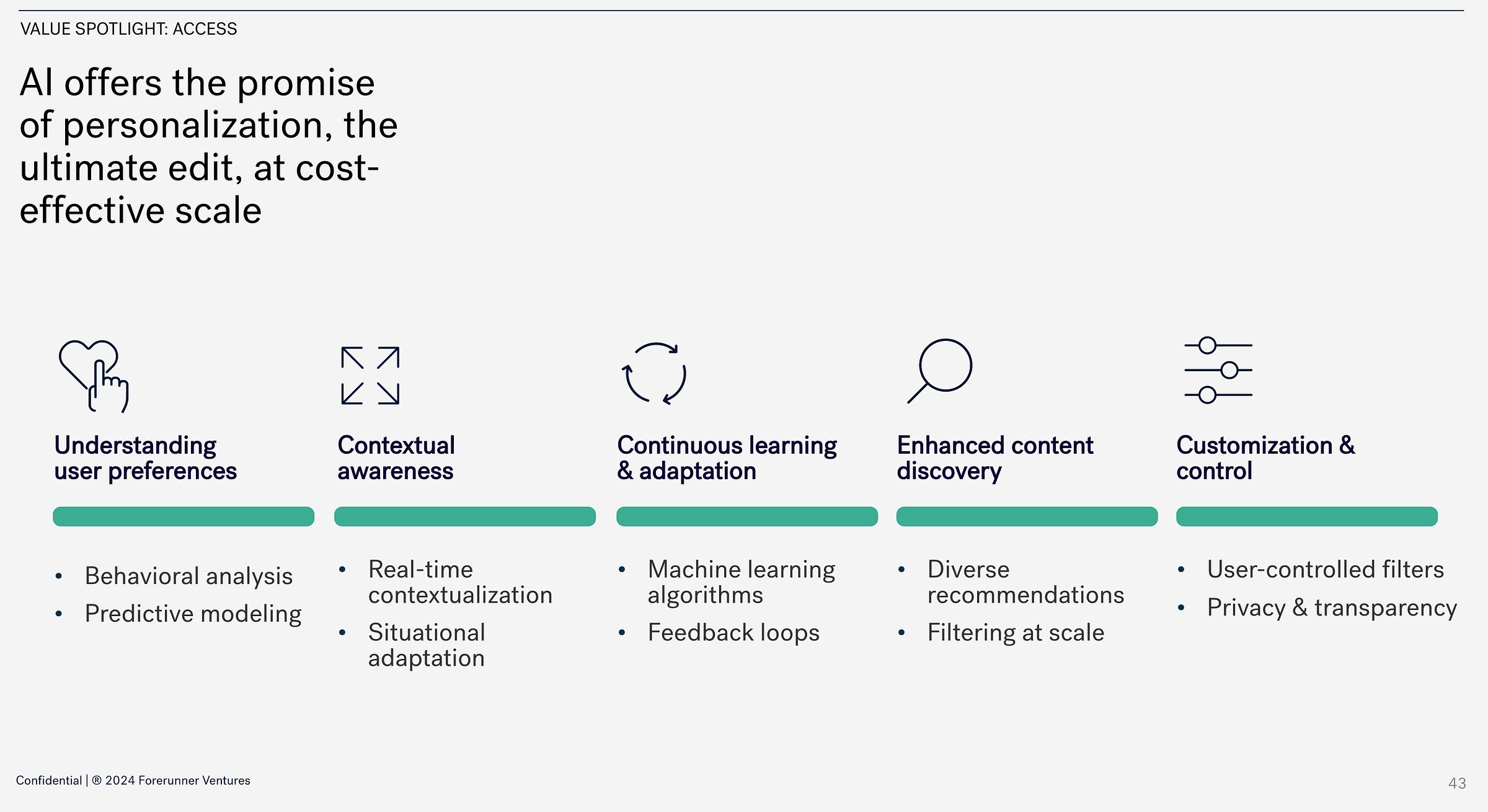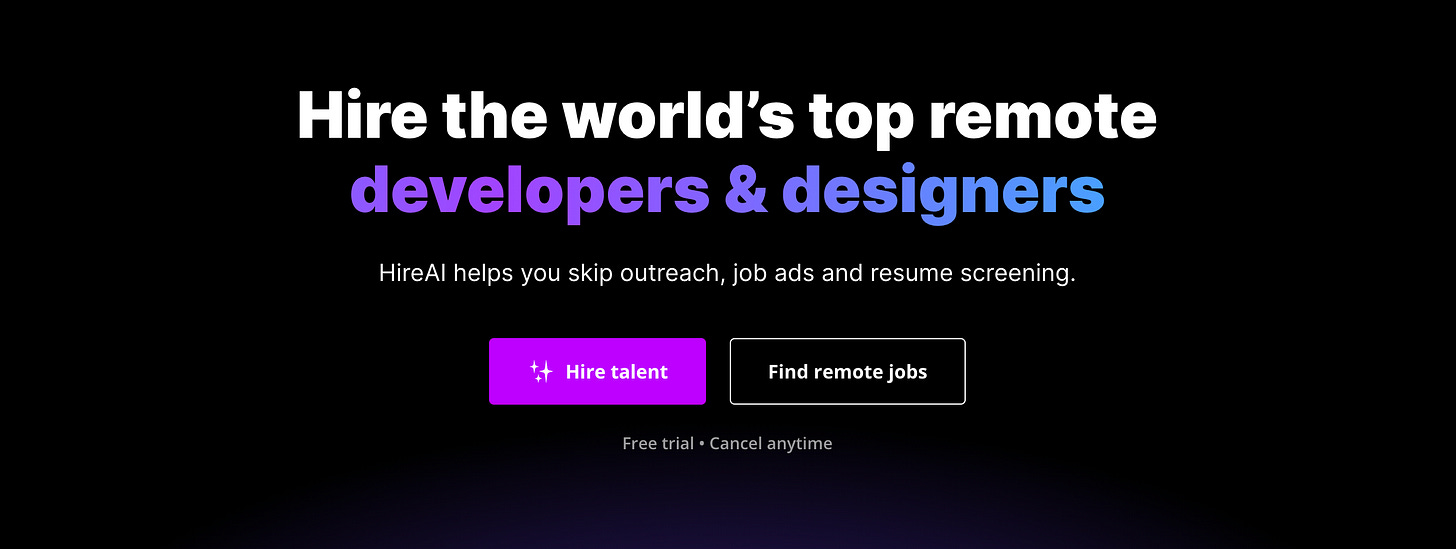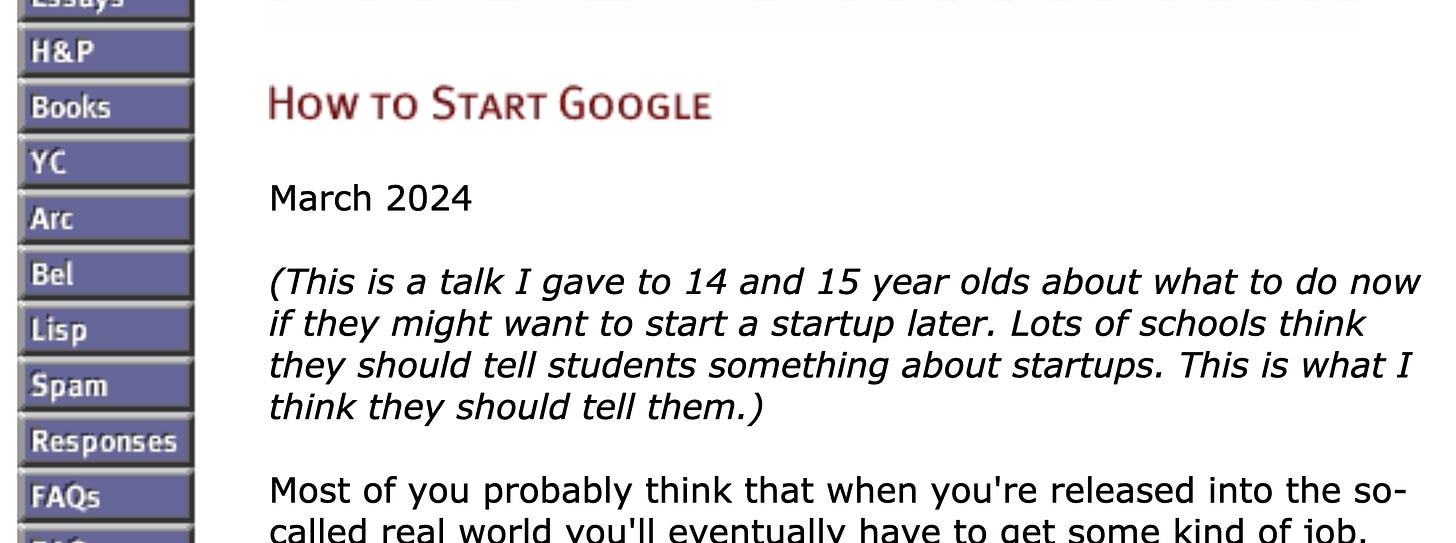Mormon's AI Strategy, Quora's Thoughts on (Future) AI Products, and How to Start Google
A few impactful reads and things to consider before the weekend.
Morning y’all!
I hope it’s been a busy and productive week! One more day of work and then we all get some much-needed rest over the weekend, right? I’ve got a bunch of work to do so we’ll jump right into it and then give you back your time!
And I’ll see you fine folks on Monday for another newsletter. And another. And another. And another!
※\(^o^)/※
— Summer
The Mormon Church had a leadership meeting to discuss AI last week and their top-line bullets are pretty fascinating:
Spiritual Connection
The Church will use artificial intelligence to support and not supplant connection between God and His children.
The Church will use artificial intelligence in positive, helpful, and uplifting ways that maintain the honesty, integrity, ethics, values, and standards of the Church.
Transparency
People interacting with the Church will understand when they are interfacing with artificial intelligence.
The Church will provide attribution for content created with artificial intelligence when the authenticity, accuracy, or authorship of the content could be misunderstood or misleading.
Privacy and Security
The Church’s use of artificial intelligence will safeguard sacred and personal information.
Accountability
The Church will use artificial intelligence in a manner consistent with the policies of the Church and all applicable laws.
The Church will be measured and deliberate in its use of artificial intelligence by regularly testing and reviewing outputs to help ensure accuracy, truthfulness, and compliance.
I find all of this very interesting because the reach of AI technology is quickly reaching areas within our culture and society that usually take years, if not decades. I have personal experience with this as I worked in the non-profit arena for a few years and saw the adoption of things like social media take years to not only be accepted but, more importantly, actively used.
But that gap now is definitely closing and that says something about all of us and this emergent form of engagement in technology.
This interview with the CEO of Quora isn’t too long and since I was once a large user of the site (no more since it’s not very useful at all anymore) I wanted to hear not only his thoughts on the how AI is going to reach the masses but also how to build products. The bigger transcript is here if you want but there are two quotes that I found very useful, especially if you’re building a startup or a new project:
I think there will be a lot of value placed on the idea that you know the source of your information, you know which human said it, or which publication originally printed it. I expect that that is going to lead to some kind of product or some kind of user experience where the LLM is helping you sort through your sources, and quoting exact experts or exact sources, as opposed to just synthesizing it all and giving you something where you can’t exactly trust where it came from.
Above is all about trust and sourcing the right info, which is a definite need in novel implementations of AI. It is a very unique challenge that good products should try to solve as a core value. Secondly:
I think the opportunities for new players in this wave are more in the cases where the kind of product you want to build around this technology is somehow fundamentally different than what was built before. And so, as an example, the hallucination problem, that’s in some ways a good thing for startups, because a lot of the existing products out there have zero tolerance for anything that’s going to have a risk of producing something wrong.
Hallucinations are a huge problem and if you can both cite sources well and remove bias then you probably have a really good product concept already. Food for thought.
Forerunner Ventures has a Consumer Report that’s got some AI (of course) inside starting around the 40th page or so. I won’t bore you with a lot of the (obvious) details so you can review it here if you’d like.
Arc is a new platform for finding remote developers and designers. You can use it as an employer or for searching. I went through their onboarding which wasn’t terribly onerous and the interface is clean and simple.
A Tokyo-based startup released 3 new Japanese language aI models:
EvoLLM-JP: A model with Japanese fluency and math capabilities.
EvoSDXL-JP: A diffusion model for high-speed image generation.
EvoVLM-JP: A vision language model for Japanese text and images.
That’s kind of cool! And their open sourcing some of their work too. Great!
A fun essay by Paul Graham, founder of YCombinator. If you’re building anything there are some solid reminders inside:
How do you get from where you are now to the point where you can start a successful startup? You need three things. You need to be good at some kind of technology, you need an idea for what you're going to build, and you need cofounders to start the company with.
AI could be one of those technologies that you become “good” at and since it’s the very early innings of this exciting frontier, there aren’t that many. Now would be a good time to get started! I would also note that finding great people to work with is really, really important. The solo act is hard — I know, I’ve tried it. And you can be successful but it’s lonely and any win you may have can seem hollow. I like to share my wins and you probably do too.
And finally, some career advice from a 42 year old. This hits harder than I thought it would so I’d thought I’d share. Have a good one friends!
\( ゚ヮ゚)/
— Summer






